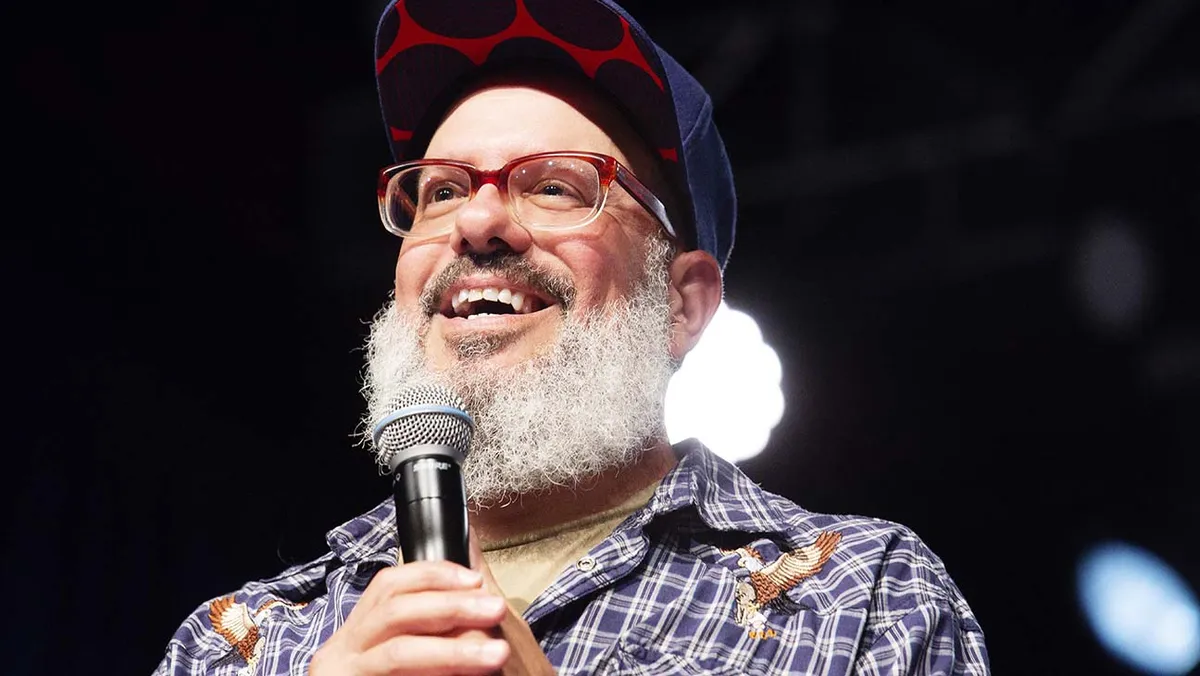
Renowned comedian David Cross has emerged as a leading voice in the ongoing debate surrounding the controversial Riyadh Comedy Festival in Saudi Arabia. Cross has publicly condemned fellow comedians for their participation in an event that has generated significant backlash due to its ties to a repressive regime. In a scathing open letter posted on his website, he expressed his profound disappointment and disgust regarding the event, which is marketed as “the world’s largest comedy festival” and features over 50 prominent comedians.
The festival boasts a star-studded lineup, including acclaimed performers such as Bill Burr, Dave Chappelle, Louis C.K., Kevin Hart, Pete Davidson, and Whitney Cummings. However, Cross did not hold back in his criticism, stating, “I am disgusted, and deeply disappointed in this whole gross thing.” He questioned the motives of these comedians, suggesting that their decision to perform in Saudi Arabia was driven by monetary gain, stating, “That people I admire, with unarguable talent, would condone this totalitarian fiefdom for … what, a fourth house? A boat? More sneakers?”
Cross continued his critique by addressing the hypocrisy of these comedians, emphasizing that their future complaints about cancel culture or freedom of speech should be taken less seriously. He stated, “We can never again take seriously anything these comedians complain about... You don’t get to talk about it ever again.” Cross highlighted the oppressive nature of the Saudi regime, referring to the situation as “the definition of ‘blood money’,” and warned that their actions would not be forgotten.
Additional scrutiny of the festival's ethical implications came from comedian Atsuko Okatsuka, who turned down an offer to perform and subsequently shared the festival's contract online. The contract includes strict guidelines that prohibit performers from making any jokes that could be perceived as degrading or defamatory towards Saudi Arabia, its leadership, or any religious practices. This level of censorship has raised eyebrows and further fueled the debate over artistic freedom versus financial incentives.
Other comedians have also voiced their disapproval of the festival. Marc Maron, host of the WTF podcast, questioned how comedians could promote an event linked to a regime responsible for human rights violations, stating, “...the same guy that’s gonna pay them is the same guy that paid that guy to bone saw journalist Jamal Khashoggi.” Similarly, comedian Shane Gillis rejected his invitation to the festival, citing his moral stance against performing in such a context.
Despite the criticism, comedian Pete Davidson has chosen to participate in the festival, even though he has personal connections to the events of 9/11, as his firefighter father perished in the attacks. During an appearance on Theo Von’s podcast, Davidson explained that the substantial paycheck influenced his decision, saying, “I get the flight routing, and then I see the number, and I go, ‘I’ll go.’” This statement has sparked further discussions about the ethics of performing in a country like Saudi Arabia, especially for those with personal ties to the tragic events of 9/11.
As the Riyadh Comedy Festival approaches, the controversy surrounding it continues to unfold. David Cross's letter has ignited a vital conversation about the responsibilities of artists and the impact of their choices. With prominent figures in comedy under scrutiny, the festival serves as a stark reminder of the complex intersection between entertainment, politics, and human rights. How comedians navigate these challenges moving forward will be pivotal in shaping the future of comedy and its relationship with societal issues.